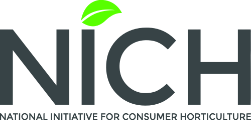Our Goals:
Cultivating Healthy, Connected and Engaged Communities
Our Objectives:
Educate the public on nutritional, physical, psychological, and social health benefits associated with Consumer Horticulture
Provide policymakers with current scientific information that supports the social and community health, impacts of Consumer Horticulture
Strengthen the adoption of Consumer Horticulture in the U.S. as an effective tool for improving human health and community well-being across diverse populations.
2016
- First meeting held at American Society for Horticultural Science in August in Atlanta, GA, and brainstormed strategies to meet the goal.
- Officially convened Social Committee meeting. Introduced members, elected Secretary.
- Recruited support letters for pre-proposal grant.
- Determined a gap analysis and literature review was essential to success.
2017
- Proposed Committee name be changed from Social to Community and Health Benefits (of Consumer Horticulture); accepted, changed.
- Initiated extensive, in-depth literature review focused on community and health benefits of horticulture; focused on physical, psychological, nutritional, and social aspects.
- Proposed minor changes in objectives to greater reflect our focus; NICH Executive Committee accepted, adopted November 2017.
- Held a Workshop at ASHS National meeting in Hawaii in August 2017. Topics included all of NICH work as well as discussion and opportunities to bring in more partners.
- Committee member attended NIFA listening session, provided comments regarding the community and health benefits of Consumer Horticulture.
- Marketing Committee distributed survey regarding Community and Health Benefits objective.
2018
- Reviewed survey results; the main message was that education is a priority and change will come from the grassroots level. As a result, focused strategies were developed as follows:
- Create curriculum to raise the awareness of the value of the physiological, nutritional, physical and social benefits of consumer horticulture. The curriculum would be delivered to consumers at the grass root level utilizing a train-the-trainer strategy. It will be delivered to State Extension Master Gardener Coordinators (EMG) who will deliver to County and local EMG Coordinators who will deliver to EMGs (more than 80,000 nationally) who will then deliver to consumers.
- Implement a social media campaign as a part of the curriculum delivery.
- Work with the Marketing Committee to develop a toolbox of social media and other) resources.
- Completed ASHS Journal Article on the results of the August 2017 Workshop (to be published August 2018).
- Submitted proposal for a NICH CHB workshop combining the Consumer Horticulture/Master Gardener and Human Issues in Horticulture Professional Interest Groups (accepted to be presented in July 2018, Washington, D.C.). Workshop: The National Initiative for Consumer Horticulture: Identifying and Cultivating Consumer Horticulture Research Relationships.
- Initiated contact with the EMG National Committee to engage State Coordinators, County and local Coordinators, and eventually EMGs in the NICH effort.
Future Plans
- Pre-meeting workshop in Atlanta (June 2018) to discuss curriculum development (including evaluation tools, budget, resources necessary, timeline, etc.)
- Assignments and working teams to develop curriculum
- Continual recruitment of team members at professional meetings including but not limited to:
- Extension Master Gardener Coordinator National Meeting August 2018, Madison, Wisconsin
- American Society for Horticultural Science, Washington D.C., July 2018
- American Horticultural Therapy Conference, October 2018, Denver, Colorado
- National Association of County Agricultural Agents, 2019
- International Master Gardener Conference, Pennsylvania, 2019

Leave a Reply